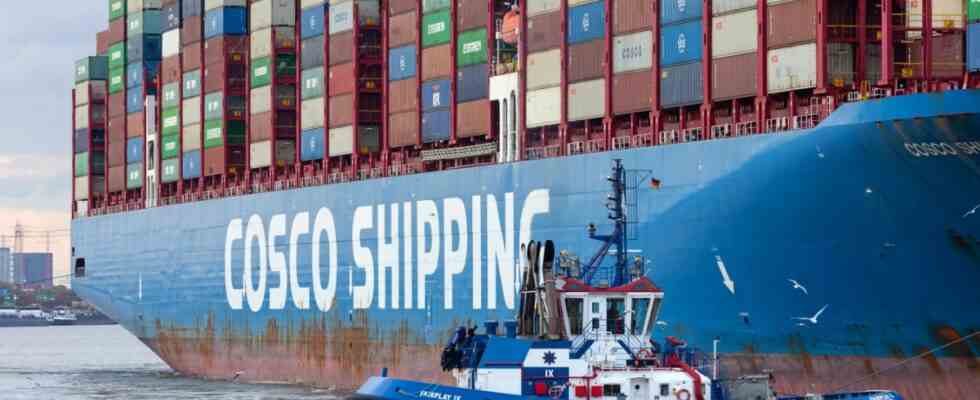The planned partial sale of the Port of Hamburg to the Chinese state-owned company Cosco has been met with criticism, even after a compromise plan became known. “The federal government repeats the mistake of many previous federal governments and puts short-term economic interests above long-term prosperity and stability,” said the Head of the German Institute for Economic Research (DIW), Marcel Fratzscherthe Reuters news agency.
According to information from Süddeutsche Zeitung the federal government will decide on a so-called partial refusal. This means that the Chinese state shipping company Cosco cannot take over 35 percent of the Tollerort terminal as planned, but only 24.9 percent. As a minority shareholder, the group would then not be able to exert any formal influence on the management.
“Cosco gains an indirect influence and important information about a critical infrastructure in Germany and Europe through its participation in the terminal company,” said DIW boss Fratzscher. In his opinion, the EU and Germany should follow the example of the USA and not only strictly prohibit any participation of non-European companies in important infrastructure, but also reverse it. This handling should not only apply to companies in autocratic countries, but to companies in all non-EU countries.
Criticism also continues within the traffic light coalition. the FDP politician Marie-Agnes Strack-Zimmermann criticized the envisaged possible compromise of a minority stake as a mistake: “As little as there is a bit pregnant in nature, there is just as little a bit Chinese in the port deal in Hamburg. Either you get involved in the business or you don’t.” , said the chairwoman of the defense committee of the German Press Agency in Berlin. The compromise is another fatal mistake in times of great uncertainty.
Of the Green foreign politician Anton Hofreiter also rejected a Chinese minority stake. With 24.9 percent, China would have “significantly less influence” than with a share of 35 percent. “But it would still be critical, because we would still have a dictatorial regime that buys infrastructure from us with the help of state-owned companies,” said Hofreiter ARD morning magazine.
the CDU defense politician Serap Güler however, is “stunned”. Güler writes on Twitter about the participation: “Would it be possible the other way around? Would #China enter into such a deal with Germany or Europe? Why are we not able to learn from our mistakes and create new dependencies instead? Where is she #turnaround?”
The Mercator Institute for China Studies also sends a clear warning: Analyst Jacob Gunter told the German Press Agency: “Cosco and its investment in the port of Hamburg harbor various risks for the security and economic interests of Germany.” Cosco is not just another multinational company simply striving for profit – it is a tool used by the Chinese government to advance strategic goals.
Gunter warned of long-term security risks: “The more dependent Germany becomes on investments and deals with Cosco, the more influence Cosco and party officials can have on German China policy.”
DIW: Europe is compromising competitiveness and economic prosperity
The federal government is not pursuing a value-oriented foreign trade policy, said DIW President Fratzscher, but a “mercantilist foreign trade policy aimed at short-term profits and not long-term competitiveness”. In doing so, Germany and Europe compromised their long-term competitiveness and economic prosperity.
From Fratzscher’s point of view, the EU and Germany should place the symmetry of economic relations at the center of their economic policy with China. European and German companies do not have the same access and rights in China as Chinese companies do in the European Union, says Fratzscher. “With this policy, Europe is making China strong and creating major competitive disadvantages for its own companies in the long term — as long as this asymmetry is not remedied.”

